- Funding Stage : Series A
- Raising amount : KRW 2 B
- Desired Fundraising Timeframe : 2Q 2025
Sea cucumbers are widely consumed in Korea, but China’s passion for them is unmatched, with an annual consumption of 150,000–200,000 tons and a market worth USD 7.14–14.29 billion (KRW 10–20 trillion). About 70% of China’s sea cucumbers come from domestic aquaculture, but the use of large quantities of chemicals and low-quality feed has tarnished their image. As a result, the premium market increasingly relies on imports, with Korea as a major supplier. Korea produces about 2,000 tons of sea cucumbers annually, 90% of which are exported to China.
Sea cucumbers thrive at 12–20°C; outside this range, they struggle, burrowing into mud to enter a dormant state. High water temperatures risk mass mortality, making wild cultivation challenging and requiring 2–3 years for harvest. Global warming’s rising sea temperatures further complicates growth. A company addressing these issues and meeting China’s demand with advanced aquaculture technology is today’s focus: Haesin.
Haesin overcomes the inefficiencies and uncertainties of traditional sea cucumber farming, which relies on releasing juveniles into the sea for later diver collection, through an AI- and ICT-based smart marine aquaculture system. This conventional method struggles with quality control, yield prediction, and mass production.
How does Haesin solve this? CEO Un-bong Kim explains, “We introduced a chemical- and feed-free eco-friendly composite cage system and a smart monitoring system for real-time marine environment and growth data. During dormancy triggered by temperature changes, we move sea cucumbers to land-based facilities with controlled temperatures, shortening the farming period.” This boosts growth rates, minimizes disease, and ensures stable, high-quality production.
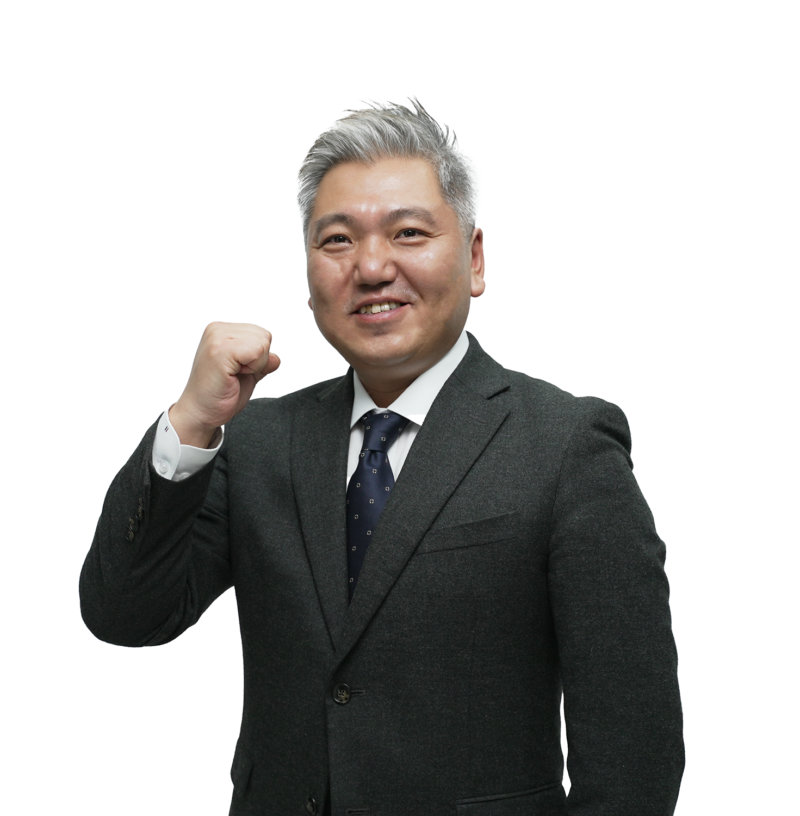
Haesin has vertically integrated the aquatic bioindustry, from raw production to processing, export, and by-product recycling. At its smart automated processing facility in Gunsan’s Saemangeum Aquatic Food Export Processing Complex, it mass-produces premium processed sea cucumber products like dried, steamed, and soy-marinated varieties, maintaining consistent quality via a big data-based quality control system.
Notably, Haesin applies upcycling technology, largely untapped in the fisheries sector, to transform processing by-products and other aquatic waste into high-functionality materials. Beyond sea cucumber exports, it produces high-value ingredients like collagen, glucosamine, and saponin for B2B clients in nutraceuticals, cosmetics, and healthcare, addressing marine pollution while maximizing profitability.
Haesin is rapidly expanding globally. China, accounting for ~80% of global sea cucumber consumption, views them as healthy foods and beauty product ingredients. Growing distrust in Chinese sea cucumbers has spiked demand for chemical- and feed-free K-Premium sea cucumbers. Haesin has partnered with China’s largest listed sea cucumber company, Haodangjia, to accelerate its premium market strategy.
Its performance is impressive. In 2024, Haesin recorded USD 6.27 million (KRW 8.79 billion) in revenue, USD 8.47 million in cumulative exports, and USD 4.57 million (KRW 6.4 billion) in assets, holding six patents and ten trademarks. In Q1 this year, it achieved USD 2.14 million (KRW 3 billion) in sales. Recognized for its technology and potential, Haesin is completing its Saemangeum export processing plant and aims for a KOSDAQ listing in 2026, expanding into biomaterials beyond seafood processing.
CEO Un-bong Kim has a unique background, born in China to Korean grandparents who migrated there. He later naturalized as a Korean citizen while working in Korea-China trade. “My grandparents were Korean, but I was born in China. I naturalized in Korea through trade work,” he says, giving him an edge in China-focused business.
Kim emphasizes, “Haesin is not just a sea cucumber farm but a marine bio-specialist with eco-friendly aquaculture and resource-recycling systems.” He aims to lead a sustainable fisheries ecosystem and elevate ‘K-Sea Cucumber’ globally.
By seizing market opportunities, adopting innovative production, and achieving strong metrics, Haesin aspires to be the first company listed for a single item—sea cucumbers. WOW Partners selected Haesin as a member of “WOW NEXT 1st Cohort” for these reasons. Investors interested in Haesin’s potential should visit its production sites in Goheung, Jeollanam-do, or Gunsan, Jeollabuk-do, to hear CEO Kim’s vision.
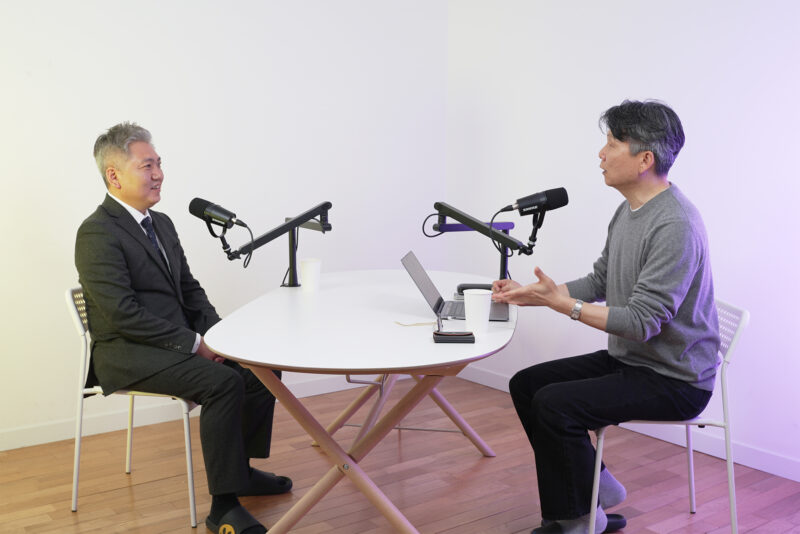
What problem is Haesin trying to solve?
Korea’s sea cucumber industry relies on release-and-capture methods, limiting quality control and production predictability. Sea cucumbers are released into the sea and harvested 2–3 years later by divers or haenyeo, with long growth cycles, environmental vulnerabilities, and low harvest stability, hindering mass production and quality uniformity.
In China, the largest consumer, sea cucumbers are used in health foods, supplements, and cosmetics, but domestic aquaculture faces consumer distrust due to chemical and feed use, increasing demand for safe, reliable K-Premium sea cucumbers.
The aquatic processing industry lags in by-product upcycling compared to agriculture. Aquatic by-products contribute to marine pollution, yet efforts to repurpose them into functional foods or biomaterials are limited.
Haesin aims to address aquaculture inefficiencies, global trust deficits, and underutilized aquatic by-products simultaneously.
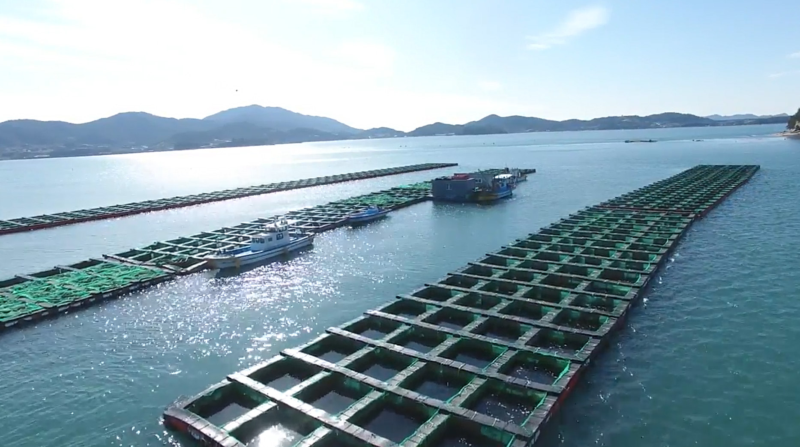
How does it solve this problem?
Haesin revolutionizes sea cucumber farming with AI- and ICT-based smart aquaculture and a Korean-style composite cage system, enhancing productivity, efficiency, and quality standardization. Its chemical- and feed-free eco-friendly methods position sea cucumbers as K-Premium products, targeting China’s premium market.
In processing, Haesin’s smart automated facility in Gunsan’s Saemangeum complex, equipped with big data quality control, mass-produces high-value products with consistent quality.
Haesin pioneers aquatic by-product upcycling, converting waste into functional materials for health foods, cosmetics, and more, tackling marine pollution and accessing China’s functional markets.
Beyond production, Haesin fosters a sustainable fisheries ecosystem and marine conservation through eco-friendly technology and resource-recycling systems.
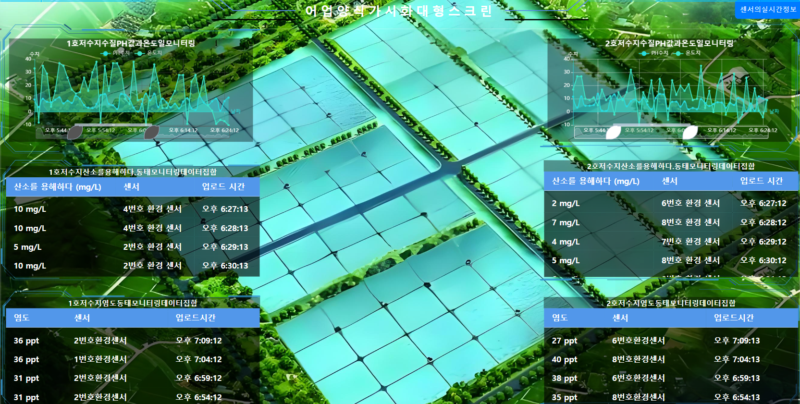
What are Haesin’s competitive advantages and technical strengths compared to competitors?
Haesin’s core strength is its vertically integrated structure, spanning farming, processing, productization, and export. It’s not just a producer but a comprehensive aquatic bioenterprise with smart aquaculture, high-value processing, and global export strategies.
Technically, first, its AI- and ICT-based smart aquaculture monitors marine environments and growth data in real-time, boosting growth rates, minimizing disease, and enabling stable, high-quality mass production.
Second, its eco-friendly, chemical- and feed-free composite cage system outperforms traditional release methods, enhancing safety and sustainability, elevating K-Premium brand value, and securing China’s high-income export market.
Third, its Gunsan Saemangeum facility’s smart automation and big data quality control ensure consistent, high-quality processed products at scale.
Finally, its aquatic by-product upcycling technology transforms waste into high-value materials like health foods and cosmetics, addressing marine pollution and boosting profitability.
Rather than pure competition, Haesin builds global partnerships, collaborating with China’s GoodFamily on R&D, technology exchange, and purchase agreements, expanding strategic alliances.
Haesin’s technology, quality, sustainability, and partnerships establish leadership in sustainable fisheries.
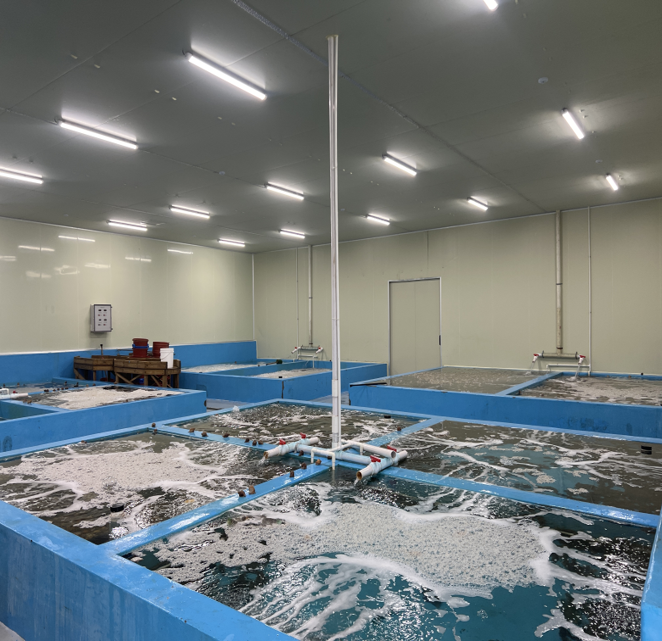
What products/services does Haesin offer, and what is their current status?
Haesin provides high-quality sea cucumber production, processed food manufacturing and export, and R&D for high-value by-product materials across the aquatic bioindustry. Its marine and land-based systems enable eco-friendly, chemical- and feed-free mass farming, targeting China’s premium market while serving domestic distribution. It produces and exports processed products like dried, steamed, and soy-marinated sea cucumbers.
Beyond raw production, Haesin develops functional, sustainable marine bioproducts, continuing R&D to strengthen market differentiation.
What is the target market size, and who are the core customers?
Haesin targets premium aquatic markets in China, Japan, Southeast Asia’s Chinese diaspora, and Korea’s premium health food sector. China, ~80% of global sea cucumber consumption, uses them in traditional tonics, health foods, and cosmetics, with growing demand for functional materials. Rising demand for eco-friendly sea cucumbers aligns with Haesin’s premium strategy.
In Korea, Haesin targets middle-aged and older health-conscious consumers and eco-friendly, functional food-preferring MZ generations. Its upcycled functional materials serve B2B clients in food, beauty, and healthcare, creating a multi-layered B2C and B2B market structure.
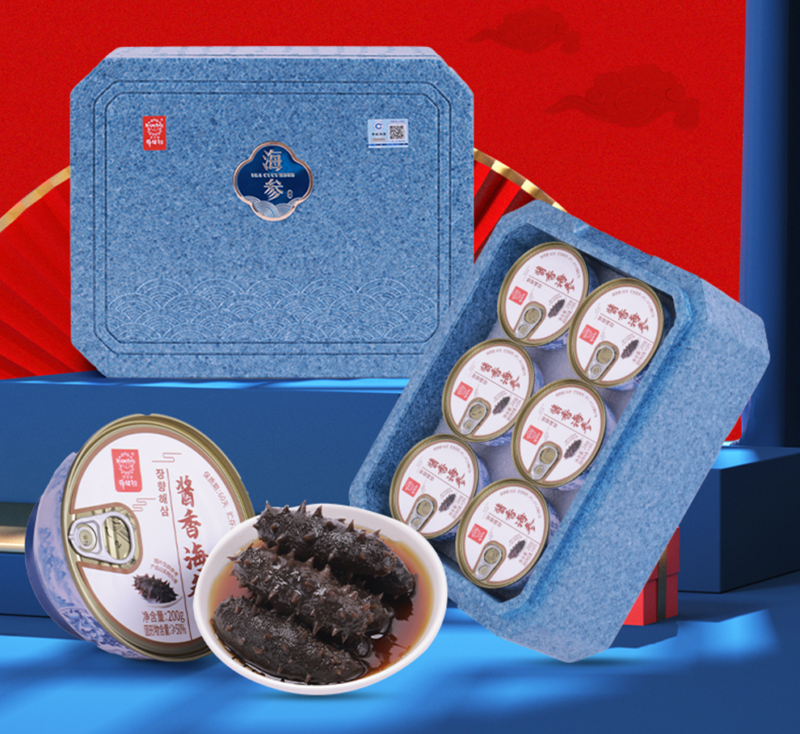
What is our business model?
Haesin’s aquatic bio-based model integrates eco-friendly raw production, high-value processed food manufacturing and export, and by-product upcycling for B2B supply.
Smart, chemical- and feed-free aquaculture ensures stable premium sea cucumber production, diversified into processed foods like dried, steamed, and soy-marinated products for domestic and global markets. Smart automation and big data quality control deliver consistent, high-quality products.
By-products and other aquatic waste are upcycled into collagen, saponin, and glucosamine for B2B supply to nutraceuticals, cosmetics, and healthcare, generating additional revenue.
This B2C and B2B model ensures stable, sustainable profits, with plans for global expansion and advanced functional materials.

What are our team’s achievements?
In 2024, Haesin recorded USD 62.79 million (KRW 87.9 billion) in revenue, USD 126.43 million (KRW 177 billion) in cumulative sales, USD 45.71 million (KRW 64 billion) in assets, and USD 8.47 million in exports, including USD 2.94 million in 2024, expanding in China.
It secured six patents (two pending) and ten trademarks, strengthening its marine bio and sea cucumber technology edge.
Haesin won the 2024 Jeonnam Global Top Enterprise Accelerating Program IR Demo Day, signed an MOU for Saemangeum Aquatic Food Export Processing Complex entry, and received the Korea Angel Investment Association President’s Award at the Honam Angel Leaders Forum. It pitched to Silicon Valley and Japan investors, joined the Jeonnam Startup Festival as a Global Top Enterprise, and participated in the Early Startup Package’s global capacity-building program, proving international competitiveness.
With branches in Gunsan, Songdo, Goseong, Suwon, and Gwangju, and an R&D contract with Gwangju University, Haesin drives technology and regional collaboration.
It secured five investment rounds and was named the 2024 Early Startup Package’s “Best Enterprise,” affirming its growth and innovation.
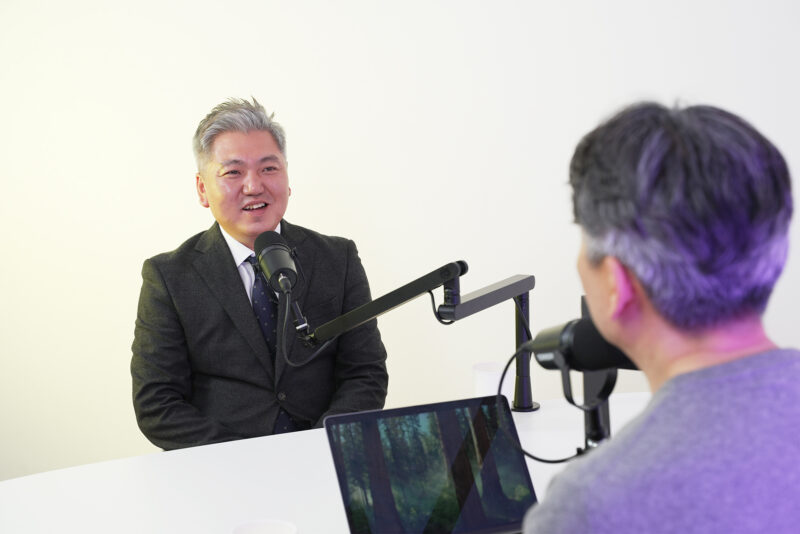
What is the Haesin team’s competitiveness?
Haesin, founded by experts in marine bio, trade, R&D, and marketing, seamlessly operates the full aquatic cycle from farming to export and technology development.
CEO Un-bong Kim, with years in Korea-China aquatic trade, leverages expertise in customs and global networks to lead strategy and operations.
Director Hae-in Yoo, with experience in Korea-China science collaboration and food bioscience, drives processed food and cosmetics planning, lab operations, and technical partnerships.
Director Xingguang Huang, a former Chinese sea cucumber aquaculture technician, leads R&D and Korean smart system development.
Connected through Shandong government officials, they combined expertise to found Haesin, focusing on premium aquatic bioindustry.
Early auditor Tae-kwon Park, a former Chungnam governor and congressman, uses policy insights and global networks for government and regional collaboration.
Advisor Young-dae Kim, with film and entertainment marketing experience, supports cultural marketing and PR for China and domestic markets.
In its third year, Haesin bolstered management, accounting, and marketing, securing academic and research infrastructure for innovation-driven growth.

Why should we receive investment? Three reasons!
First, we aim to establish a high-value sea cucumber processing plant and expand exports. Our Saemangeum facility targets 50 tons annually, expecting over 50% value increase and USD 35.71 million (KRW 50 billion) in additional revenue from sea cucumber and other aquatic products. Investment will build processing and export systems, maximizing K-Sea Cucumber’s global premium market value.
Second, we plan a 2026 KOSDAQ listing for investor exits. From inception, we’ve targeted a direct listing, executing phased growth, revenue increases, financial improvements, branch expansion, and technology development. Investors gain stable exit opportunities via our clear roadmap.
Third, we have ESG-driven sustainable fisheries ecosystem capabilities. As Korea’s only mass sea cucumber aquaculture firm, our AI- and IoT-based technology ensures quality and eco-friendly production. By upcycling by-products, developing high-value foods and cosmetics, and collaborating regionally, we offer social and financial value through an ESG-linked model.
Anything else to convey to readers?
Haesin combines technology, global vision, sustainability, and social responsibility. Beyond profits, our eco-friendly aquaculture and low-carbon processing lead a sustainable fisheries ecosystem, offering climate-resilient global alternatives.
We contribute to job creation and regional economies, with bases in Goheung, Gwangju, Gunsan, Songdo, and Suwon, delivering safe, high-quality sea cucumbers from pristine waters.
Continuous R&D investment advances aquaculture and next-generation processed products, with expanding IP portfolios driving aquatic bioindustry innovation.
Haesin leads the future of fisheries through sustainability, innovation, global expansion, and community impact, offering investors long-term value.
Rapid growth may challenge early investor entry, but we seek strategic partners for synergy, promising growth, ESG value, and global market expansion.
MORE FROM THE POST
- [Korean Startup Interview] ASTAR, Marketing AI ‘AVICA’ Certified by Major Corporations… Expanding to SMEs and Global Markets
- [Korean Startup Interview] SimfliBIO Challenges NGS with Advanced Liquid Biopsy for Global Cancer Diagnostics Market
- [Korean Startup Interview] BYAHT’s Glow.B Revolutionizes Creator Economy with AI-Powered SaaS Platform
- [Korean Startup Interview] HOW3, Pioneering Virtual Music Characters in Global Digital Content Market
- [Korean Startup Interview] BS ONE Dominates Korean Ceramic Saggars Market for Battery Cathode Production



Leave a Reply